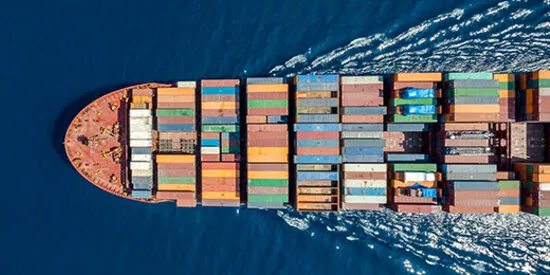
Unleashing Australia’s renewable potential
By Ben Arnott, Head of the Energy + Group for Australia and Nick Hall, Vice President, Energy + Group at Societe Generale
Australia’s emissions reduction target of 43 per cent from 2005 levels by 2030, and net zero emissions by 2050 will require contributions from different parties.
Australia is aptly named. The wind blows strongly in the ‘land of the south wind’; the sun shines much of the time; and there is plenty of land. Ideal conditions, then, for renewable energy to thrive. Yet for many years, as Europe and other parts of the world started to invest in clean generation, Australia continued to rely on its massive reserves of coal, gas and oil. The country’s first solar farm only started operating in 20111.
As recently as 2021, the country still relied on fossil fuels for 71% of its electricity generation, with coal accounting for by far the biggest slug. Renewables made up 29%, with onshore wind and solar contributing around 12% each and hydropower making up most of the rest2.
That is rapidly changing. The switch of government that occurred a year ago has accelerated earlier moves to decarbonize and provided a more holistic framework for these efforts through its Climate Change Bill 2022. This enshrines in law an emissions reduction target of 43 per cent from 2005 levels by 2030, with net zero emissions to be reached by 2050.
The new government is also expanding and accelerating an existing plan to develop renewable energy zones (REZs), areas where wind and solar generation, storage facilities (such as batteries or pumped hydro), transmission infrastructure and even some industrial customers can all be efficiently co-located.
More than 40 REZs have been designated nationwide and this is one example of where the federal government is now working in greater harmony with state administrations. Another is exploring the potential for offshore wind, with the first feasibility licences now being tendered in Victoria.
Attracting money – and competition
The impetus from the top is attracting investment. The big domestic energy companies such as Origin Energy, AGL and EnergyAustralia are all pushing heavily into renewables. They are being joined by start-ups such as Squadron Energy and overseas operators like Neoen from France and Italy’s Enel.
On top of that, there are a growing number of infrastructure and investment funds participating in Australian renewables projects. These include the big US and Canadian pension funds, the country’s own superannuation funds and homegrown financial institutions such as Macquarie, which has set up a dedicated Green Investment Group (GIG).
When it comes to attracting money, it helps that Australia is an OECD member with established institutions and a developed regulatory framework. On the flipside, that makes it a very crowded market. With good access to equity, loans and bonds are generally priced at hyper-competitive margins over the base rate – though shorter tenures of, typically 3-5 years and frequent refinancings compensate to an extent.
We at Societe Generale make use of our long-track record in this industry and leverage our international expertise to focus on ‘first-of-a-kind’ transactions that are often larger, or more highly structured than typical deals in the market, and may require broader advisory, financing and derivatives capabilities.
Reaching for real scale
A key example of this was our role in last December’s takeover of wind farm developer CWP Renewables by Squadron Energy to create Australia’s largest renewable energy company with an operating portfolio of 2.4 Gigawatts (GW) and a development pipeline of some 20GW3.
Squadron is part of the Tattarang group owned by Dr Andrew Forrest, the founder of Fortescue Metals and Fortescue Future Industries, all of which are dedicated to advancing decarbonization in Australia and internationally. Societe Generale helped to arrange, structure and hedge the A$1.8 billion debt package that supported this A$4 billion merger.
This March, we have supported as a financial advisor and one of the lenders Macquarie’s GIG and Shell Energy Australia’s first utility-scale battery storage project in Australia, a 200MW/400MWh battery energy storage system (BESS) in Cranbourne West, Victoria4. Such storage capacity is vital to turn inherently intermittent renewable energy into “round-the-clock” dispatchable power that can ensure the reliability of the electricity grid.
Deals like this show that the market is changing. Up until now, the focus was mostly on building standard renewable generation designed to satisfy peak grid demand. These latest transactions show developers seeking transformational scale and establishing an ecosystem, including storage and transmission.
And while electricity generation is still the top priority, strategic players are already piloting projects that will use renewable energy to generate green hydrogen and ammonia for export to the likes of Singapore, Japan and South Korea. This is a sector that could match and eventually overtake Australia’s shipments of fossil fuels, turning it into Asia’s green energy hub.
1. Solar power in Australia
2. Australian government: electricity generation fuel mix
3. https://www.squadronenergy.com/news/squadron-to-lead-australias-energy-transition
4. https://www.linkedin.com/posts/societegenerale-corporate-and-investment-banking_were-excited-to-be-working-with-shell-energy-activity-7049559040745476096-7QME/




